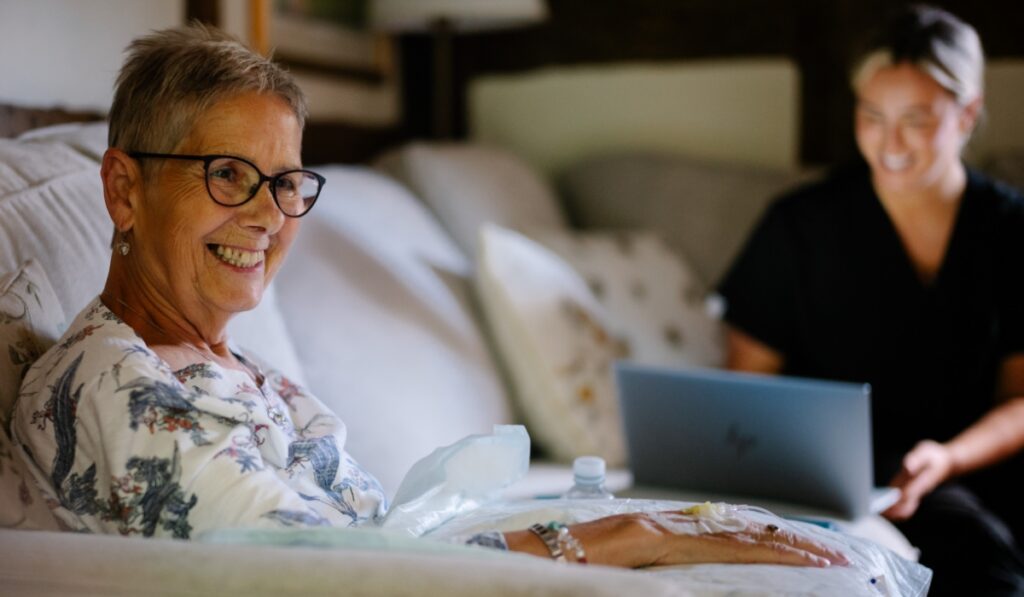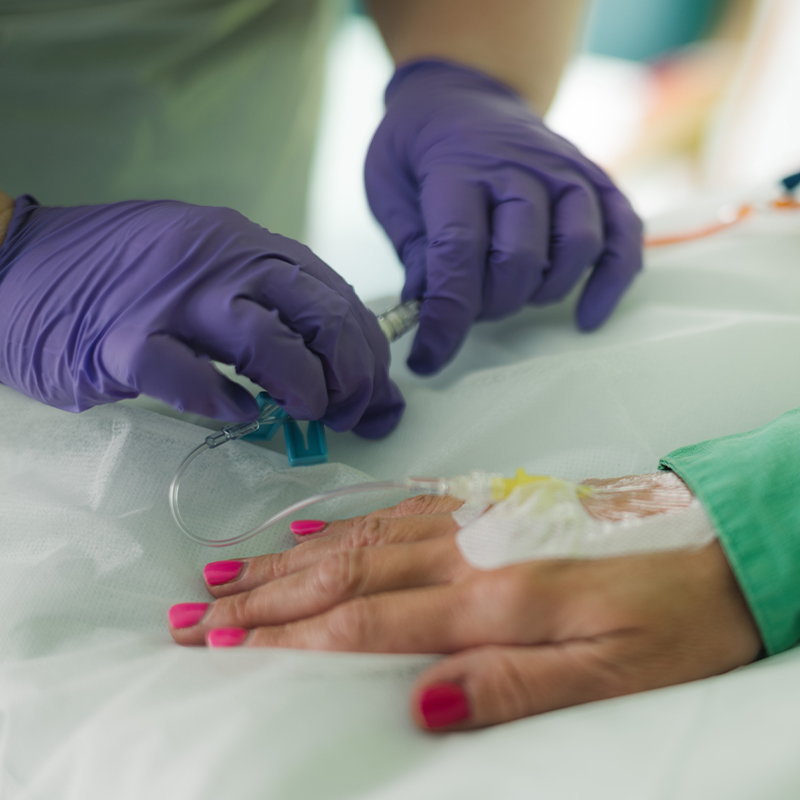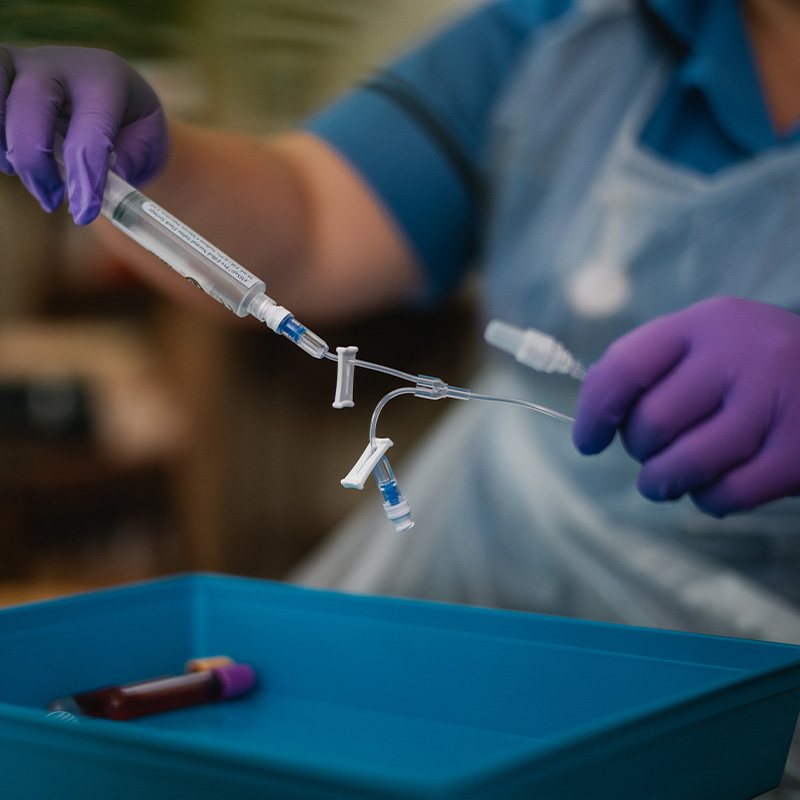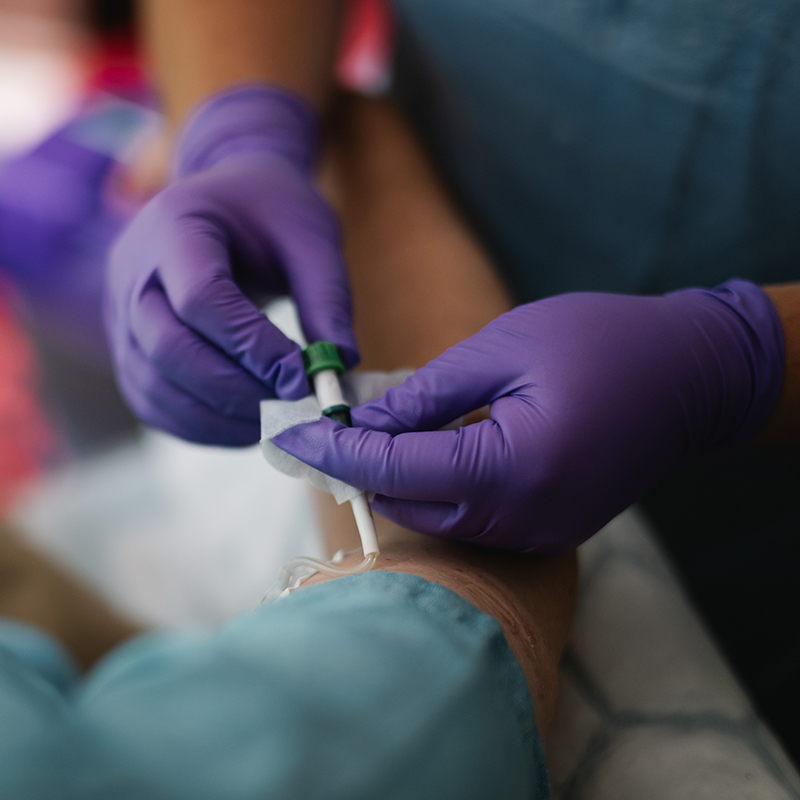Understanding private skin cancer treatment costs in the UK
Navigating a skin cancer diagnosis and trying to understand private treatment costs can feel overwhelming. If you’re considering private healthcare for skin cancer, our guide is here to help you understand private skin cancer treatment costs in the UK:
- What influences skin cancer treatment costs
- Treatment paths: diagnostics, procedures, therapies and support
- Factors affecting the total cost
- Hospital vs home treatment
- What to expect
We’re here to help patients understand their options and assist you to find solutions that are right for you.
What influences private skin cancer treatment costs
The cost of private skin cancer treatment is affected by many factors. Understanding what shapes overall costs helps you make considered choices for yourself or a loved one.
Type and stage of skin cancer
Your individual path will depend on the type of skin cancer diagnosed and how advanced it is. Early detection of cancerous tissue or abnormal skin cells may require a small surgical procedure, while advanced non-melanoma skin cancer, cutaneous squamous cell carcinoma, or malignant melanoma may necessitate broader excision, skin grafts, or lymph node involvement.
Complexity of diagnosis and treatment
Simple cases may be managed with surgical removal of cancerous cells from the affected area, while more complex presentations, such as skin lesions requiring Mohs surgery, sentinel lymph node biopsy, or other treatments, may increase the overall financial commitment.
Your private skin cancer treatment path
Diagnostics and initial consultations
- Initial specialist consultation with a consultant dermatologist to discuss symptoms, medical history, risk factors and previous treatments
- Dermatoscopic examination for early detection and mapping of skin growths, suspicious lesions, or existing moles
- Biopsy procedures (punch, shave, incisional, excisional) to diagnose skin cancer, determine stage and type and establish a treatment plan
- Diagnostic imaging (ultrasound, MRI scans, CT, PET-CT) is required if further assessment or staging is required
- Laboratory pathology and histology to analyse skin, confirming the presence and type of cancer cells or melanoma skin cancer
Surgical procedures
Surgery remains the main treatment for many skin cancers:
- Minor surgical excision or small surgical procedure to remove affected skin and healthy tissue margins (often for basal cell skin cancer or squamous cell cancer)
- Mohs micrographic surgery especially for facial cancers, recurrent cell carcinomas, or to conserve healthy skin
- Wider excision with skin graft or skin flap particularly for melanoma skin cancer or if the cancer has spread
- Sentinel lymph node biopsy to check nearby lymph nodes for cancerous cells, important for staging of melanoma and other skin cancers
Non-surgical & advanced therapies
Based on your diagnosis and treatment plan, you may require a combination of approaches:
- Cryotherapy (liquid nitrogen), photodynamic therapy or topical chemotherapy for surface or precancerous cells
- Radiation therapy for those unsuitable for surgery or in cases of widespread involvement
- Immunotherapy, targeted therapy, or participation in clinical trials for advanced malignancy or cutaneous squamous cell carcinoma affecting deeper layers or nearby structures
- Further treatment through additional systemic approaches as recommended by your multidisciplinary cancer care team
Follow-up and ongoing support
- Regular follow-up appointments for monitoring, wound care, scar revision, and assessment by your consultant
- Specialist nursing support, psychological support, and patient education for holistic skin cancer care
- Additional assessments, such as further tests, imaging, and bloodwork to monitor healing, recurrence or side effects of treatment
Factors affecting total cost
- Location & consultant expertise: Clinics in city centres or certain regions may charge higher fees. The involvement of a consultant plastic surgeon or specialised teams can also influence price
- Level of service & facility: Private hospitals often include added amenities, theatre access for surgical procedures and multi-disciplinary teams for complex care
- Treatment plan complexity: Steps such as Mohs surgery, advanced excision, skin grafts, removal of the affected area, or follow-up treatments (such as photodynamic therapy or chemotherapy) directly affect private skin cancer treatment costs
- Insurance, payment options & packages: Private medical insurance may help cover diagnostic work, surgical excision, wound care, and therapies, but coverage will vary. Ask about options for clear, fixed-price packages or flexible payment plans
- Combined NHS & private care: Some patients begin part of their journey (diagnosis, consultation or surgery) privately for fast access, then continue NHS care for other treatments, or vice versa
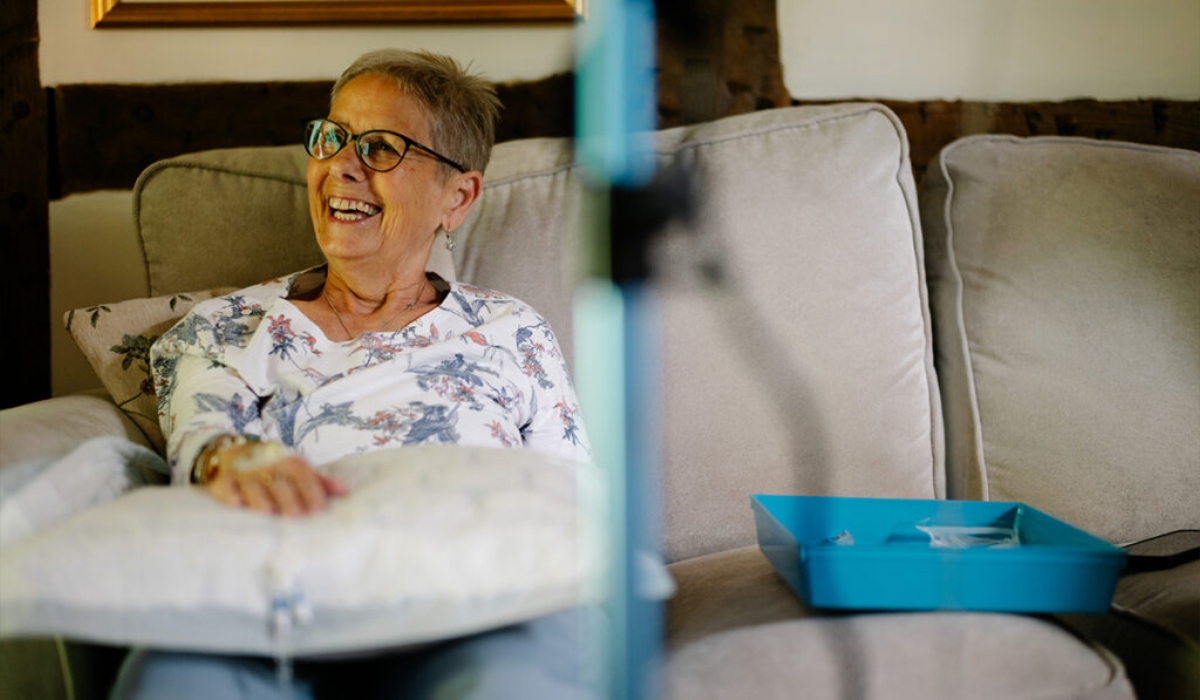
Comparing treatment settings: hospital vs home
Private hospital-based care
- Swift access to dermatology and oncology for consultation and surgical removal
- Multi-disciplinary cancer review for complex skin, deeper layers or parts of the body that require a specialist approach
- Comprehensive inpatient and outpatient support, including wound healing and cancer care
- Access to advanced treatments, ongoing follow-up, and all recommended therapies
Home-based treatment: The Lloyds Clinical approach
For many patients, home-based private treatment offers a safe and effective way to receive therapies such as chemotherapy, immunotherapy, or systemic support, especially for non-melanoma skin cancers.
Potential cost benefits:
- Minimise travel and time off work, meaning less disruption to their daily routines
- Often overheads for home care are reduced compared to hospital stays
- Enables treatment at a pace that fits your life, in a familiar setting
Insurance, self-funding & transparent pricing
- Private Medical Insurance: Most policies support the cost of consultants, diagnostic tests, surgical procedures, and some therapies, though pre-existing conditions or certain treatments. Consult with your insurance company for full details
- Self-funding: Many clinics and providers offer transparent, itemised written estimates and flexible payment plans to support self-paying patients
- Requesting information: Always ask your provider or clinic for a detailed breakdown of your care pathway, including possible follow-up appointments, surgical removal and any further treatment
What to expect: Your skin cancer care journey
Beginning private skin cancer care usually involves an initial assessment, thorough medical history and the development of a tailored treatment plan.
- Clear communication from your expert team including opportunities to ask questions about your diagnosis, treatment options and likely outcomes
- Ongoing care and wound support for healing after excision, skin graft, or flap. Guidance about skin conditions to watch for and how to protect healthy skin
- Regular follow-ups with your consultant dermatologist or plastic surgeon, with continuity of care and emotional support
Looking for more information?
We’ve worked with thousands of patients, and we know you’ll have a lot of questions.
If you’re ready to talk to us to discuss your options, fill out the form below and we’ll be in touch quickly.
If your enquiry is urgent please call 0345 2636 123 (England and Wales) or 0345 2636 135 (Northern Ireland and Scotland).
We know the benefits of cancer care at home
Our specialist cancer services ensure private medically insured and self-paying patients who want an alternative to hospital can start their treatment faster. We consider all cancer treatments, including those not currently available in hospitals.
